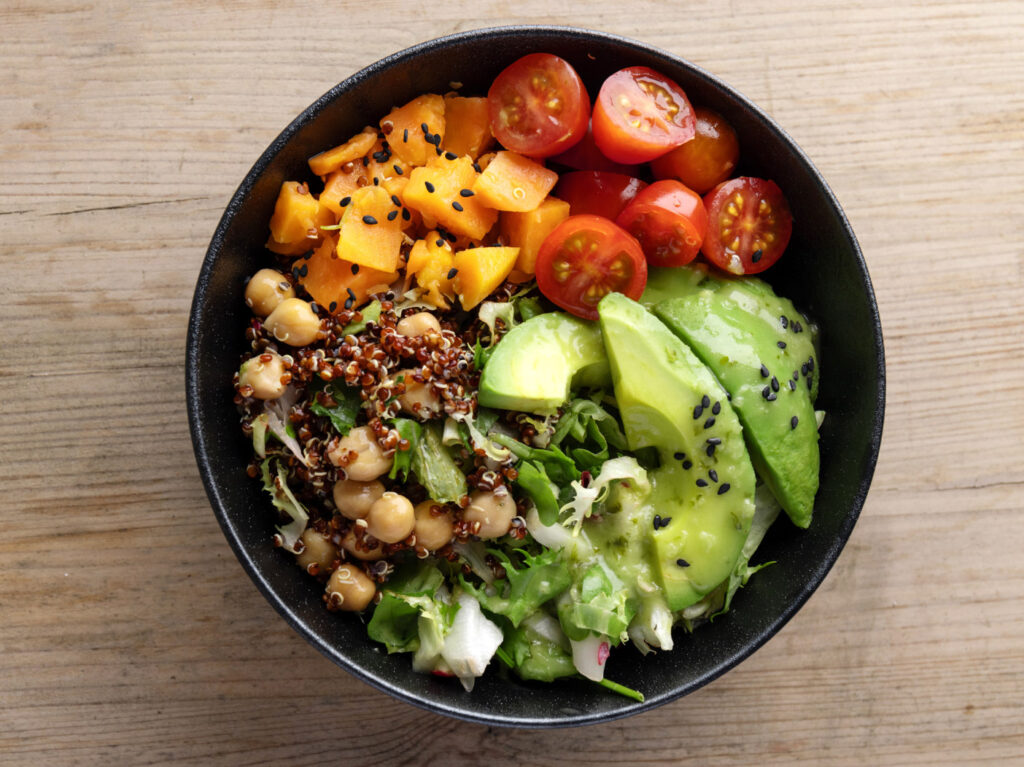The human gut accounts for almost all the functions of our body and is affected by various personal and environmental changes. Therefore, a healthy gut has to be maintained to enjoy a healthy lifestyle. One’s gut health majorly depends upon the number and composition of millions of gut bacteria residing within it. These beneficial bacteria are collectively known as gut microbiomes or gut microbiota. As a result, following or improving our lifestyle habits to improve our gut bacteria composition will improve our overall health.
Many factors, including the foods we eat, can affect the health of our gut. However, our lifestyle and food choices can affect how our body digests what we eat. Therefore, taking steps to improve our digestive health is vital so that our body doesn’t have problems absorbing the essential nutrients of our food. Many of us would not be sure where to start.Here are some strategies we can incorporate into our daily life to keep things running smoothly.
- EAT A HIGH-FIBER DIET

A high-fiber diet compromises whole grains, vegetables, fruits, and legumes. This type of diet helps to keep food moving through the digestive tract, making you less likely to get constipated. Fiber-rich food can prevent and treat digestive problems like hemorrhoids and irritable bowel syndrome (IBS). It is also a main constituent when we are following a weight loss regimen.
- INCORPORATE PROBIOTICS
Probiotics are healthy bacteria that mimic the role of gut bacteria and yeast naturally present in our body. They help keep our bodies healthy by combating the effects of a poor diet, antibiotics, and stress. Probiotics can also enhance nutrient absorption, strengthen our immune system and even help treat IBS. Good sources of probiotics are low-fat yogurt, kefir, kimchi, sauerkraut, and miso.
- PREFER LEAN MEAT
Although meat is a good source of protein, choosing fatty cuts of meat can lead to digestive discomfort. Lean cuts such as pork loin and skinless poultry are easy to digest. However, your plate must be filled with fiber-rich whole grains, fruits, vegetables, and a limited portion of animal-based food to improve gut bacteria composition.
- TRY LOW FODMAP DIET
FODMAP (fermentable oligosaccharides, disaccharides, monosaccharides, and polyols) foods are a type of carbohydrate that is hard for some people to digest. Therefore, the FODMAP diet offers some relief when dealing with symptoms like abdominal cramping, gassiness, bloating, and diarrhea. Consult a registered dietician when you want to follow this diet plan, as it eliminates a lot of foods from your diet. This diet is meant to be followed for a short period just to identify the triggering foods that make your digestion poor.
- EAT REGULAR MEALS
Aim to eat your lunch, dinner, and breakfast at the same time each day. This healthy habit will help keep your digestive system in good shape. Eating regularly prevents dips in your energy and keeps you alert and focused.
- EAT SMALLER MEALS AND CHEW THOROUGHLY
Small but frequent meals can avoid overwhelming the gastrointestinal tract. It will prevent dips in energy, stabilize blood sugar, and prevent overeating. However, chewing your food well also helps in easing the digestion process. If food is not chewed properly, larger particles will enter your digestive tract leading to problems like gas, bloating, constipation, and headaches.
- DRINK PLENTY OF WATER
Drinking plenty of water may be linked with increased diversity of gut bacteria. Water and other drinks help break down food so your body absorbs nutrients effectively. It also makes your stool softer. Choose water instead of sugary beverages.
- REDUCE EXCESSIVE SMOKING, CAFFEINE, AND ALCOHOL
Taking too much of these can cause addiction and lead to problems like heartburn and stomach ulcers. In the small intestine and colon, alcohol causes depletion of good gut bacteria, eventually resulting in intestinal damage with a “leaky gut.” Smoking is also associated with an increased risk of Crohn’s disease and gallstones. Similarly, regular caffeine consumption alters intestinal microbiota by destroying good gut bacteria and causing dysbiosis.
- REDUCE SUGAR AND SWEETENERS
An imbalance of gut bacteria composition can also happen by consuming lots of sugar and sweeteners. In turn, this will trigger your brain and behavior adversely. In the long run, these can increase the risk of metabolic diseases like diabetes and heart disease.
- STRESS MANAGEMENT
A busy schedule or overburdened life can put you in stressful situations. But, too much stress and anxiety can cause an imbalance in the digestive system. One needs to find a solution to these overwhelming problems by distracting your mind and engaging in stress-reducing activities you enjoy. Some mind-relaxing exercises that can help are breathing exercises, meditation, and yoga.
- EXERCISE REGULARLY

Regular exercise helps keep foods moving through your digestive tract and reduce symptoms like constipation. Staying active will also help maintain a healthy weight that, in turn, is good for your gut. Therefore, make it a point to weekly schedule your exercise routine. Vigorous exercises are not always advised. Beginners can start with aerobic exercises like brisk walking, jogging, and bicycle riding. However, staying active at home while taking care of your household activities is also considered a workout.
- ADEQUATE SLEEP
Uninterrupted sleep at night allows for deep tissue repair and healthy hormone production. Sleep helps to heal your body and digestive processes. Therefore, you must set up a good sleep environment in your bedroom. Dim the light and shut devices off at least one hour before bed, make your bedroom calm and peaceful and aim to go to bed at the same time each night.
SIGNS OF UNHEALTHY GUT
Now let me give you a list of symptoms that can give you an insight into the unhealthy functioning of your gut. Here are some:
- Upset stomach
- Unwanted weight changes
- Sleep disturbance
- Skin irritation
- Food intolerances
- Autoimmune conditions
CONCLUSION
The human gut is influenced by many factors and thus is complex. As it impacts whole body health, one needs to bring lifestyle and dietary changes to raise the number of gut bacteria. It may seem hard to adapt to new habits initially, but it becomes an effortless job with time.
Download the JOYSCORE APP and experience a healthy and joyful life.
Download on the Appstore
Get it on Google Play



